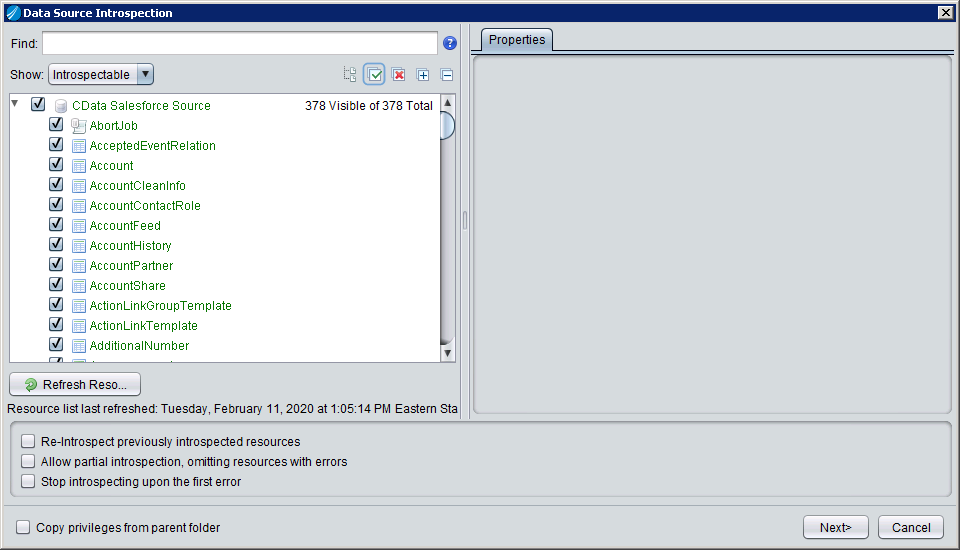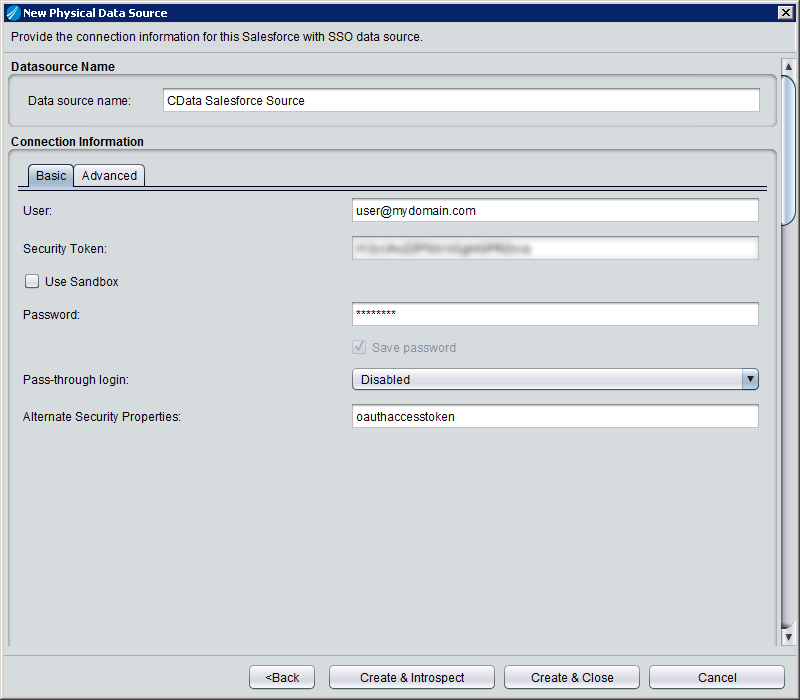Discover how a bimodal integration strategy can address the major data management challenges facing your organization today.
Get the Report →Access Live Facebook Data in TIBCO Data Virtualization
Use the CData TIBCO DV Adapter for Facebook to create a Facebook data source in TIBCO Data Virtualization Studio and gain access to live Facebook data from your TDV Server.
TIBCO Data Virtualization (TDV) is an enterprise data virtualization solution that orchestrates access to multiple and varied data sources. When paired with the CData TIBCO DV Adapter for Facebook, you get federated access to live Facebook data directly within TIBCO Data Virtualization. This article walks through deploying an adapter and creating a new data source based on Facebook.
With built-in optimized data processing, the CData TIBCO DV Adapter offers unmatched performance for interacting with live Facebook data. When you issue complex SQL queries to Facebook, the adapter pushes supported SQL operations, like filters and aggregations, directly to Facebook. Its built-in dynamic metadata querying allows you to work with and analyze Facebook data using native data types.
Deploy the Facebook TIBCO DV Adapter
In a console, navigate to the bin folder in the TDV Server installation directory. If there is a current version of the adapter installed, you will need to undeploy it.
.\server_util.bat -server localhost -user admin -password ******** -undeploy -version 1 -name Facebook
Extract the CData TIBCO DV Adapter to a local folder and deploy the JAR file (tdv.facebook.jar) to the server from the extract location.
.\server_util.bat -server localhost -user admin -password ******** -deploy -package /PATH/TO/tdv.facebook.jar
You may need to restart the server to ensure the new JAR file is loaded properly, which can be accomplished by running the composite.bat script located at: C:\Program Files\TIBCO\TDV Server <version>\bin. Note that reauthenticating to the TDV Studio is required after restarting the server.
Sample Restart Call
.\composite.bat monitor restart
Authenticate with Facebook Using OAuth
Since Facebook authenticates using the OAuth protocol and TDV Studio does not support browser-based authentication internally, you will need to create and run a simple Java application to retrieve the OAuth tokens. Once retrieved, the tokens are used to connect to Facebook directly from the adapter.
The following code sample shows how to authenticate with Facebook. You will simply need to execute the Java application with the tdv.facebook.jar file in the class path.
FacebookOAuth oauth = new FacebookOAuth();
oauth.generateOAuthSettingsFile("InitiateOAuth=GETANDREFRESH;" +
"" +
"OAuthSettingsLocation=C:\facebook\OAuthSettings.txt;");
Once you deploy the adapter and authenticate, you can create a new data source for Facebook in TDV Studio.
Create a Facebook Data Source in TDV Studio
With the CData TIBCO DV Adapter for Facebook, you can easily create a data source for Facebook and introspect the data source to add resources to TDV.
Create the Data Source
- Right-click on the folder you wish to add the data source to and select New -> New Data Source.
- Scroll until you find the adapter (e.g. Facebook) and click Next.
- Name the data source (e.g. CData Facebook Source).
Fill in the required connection properties.
Most tables require user authentication as well as application authentication. Facebook uses the OAuth authentication standard. To authenticate to Facebook, you can use the embedded OAuthClientId, OAuthClientSecret, and CallbackURL or you can obtain your own by registering an app with Facebook.
See the Getting Started chapter of the help documentation for a guide to using OAuth.
NOTE: Set the OAuthSettingsLocation property in the DV Adapter to the same value you used when performing the OAuth authentication (see above).
![Filling in Connection Information (Salesforce is shown.)]()
- Click Create & Close.
Introspect the Data Source
Once the data source is created, you can introspect the data source by right-clicking and selecting Open. In the dashboard, click Add/Remove Resources and select the Tables, Views, and Stored Procedures to include as part of the data source. Click Next and Finish to add the selected Facebook tables, views, and stored procedures as resources.

After creating and introspecting the data source, you are ready to work with Facebook data in TIBCO Data Virtualization just like you would any other relational data source. You can create views, query using SQL, publish the data source, and more.







